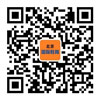
400-805-3685

大家都在关注:19年7月国际学校开放日全国优质国际高中国际初中国际小学推荐
1. 虚拟语气
1) 概念
虚拟语气用来表示说话人的主观愿望或假想,所说的是一个条件,不一定是事实,或与事实相反。
2) 在条件句中的应用
条件句可分为两类,一类为真实条件句,一类为非真实条件句。非真实条件句表示的是假设的或实际可能性不大的情况,故采用虚拟语气。
1.1 真实条件句
真实条件句用于陈述语气,假设的情况可能发生,其中 if 是如果的意思。
时态关系
句型: 条件从句 主句
一般现在时 shall/will + 动词原形
If he comes, he will bring his violin.
典型例题
1.2 表示对将来的假想
句型: 条件从句 主句
一般过去时 should+ 动词原形
were+ 不定式 would + 动词原形
should+ 动词原形
If you succeeded, everything would be all right.
If you should succeed, everything would be all right.
If you were to succeed, everything would be all right.
1.3 混合条件句
主句与从句的动作发生在不同的时间,这时主,从句谓语动词的虚拟语气形式因时间不同而不同,这叫做混合条件句。
If you had asked him yesterday, you would know what to do now. (从句与过去事实相反,主句与现在事实相反。)
If it had rained last night (过去), it would be very cold today (现在).
1.4 虚拟条件句的倒装,虚拟条件句的从句部分如果含有were, should, 或had, 可将if省略,再把were, should或had 移到从句句首,实行倒装。
Were they here now, they could help us. =If they were here now, they could help us.
Had you come earlier, you would have met him =If you had come earlier, you would have met him.
Should it rain, the crops would be saved. =Were it to rain, the crops would be saved.
注意:在虚拟语气的从句中,动词’be’的过去时态一律用"were",不用was, 即在从句中be用were代替。
If I were you, I would go to look for him. 如果我是你,就会去找他。
If he were here, everything would be all right. 如果他在这儿,一切都会好的。
典型例题
_____ to do the work, I should do it some other day. A. If were I B. I were C. Were I D. Was I
答案C. 在虚拟条件状语中如果有were, should, had这三个词,通常将if省略,主语提前, 变成 were, should, had +主语的形式。但要注意,在虚拟条件状语从句中,省略连词的倒装形式的句首不能用动词的缩略形式。如我们可说 Were I not to do., 而不能说 Weren’t I to do.

入学帮助热线:400-805-3685010-51268841

咨询热线:010-51268841
国际学校择校
我要给孩子
报学校